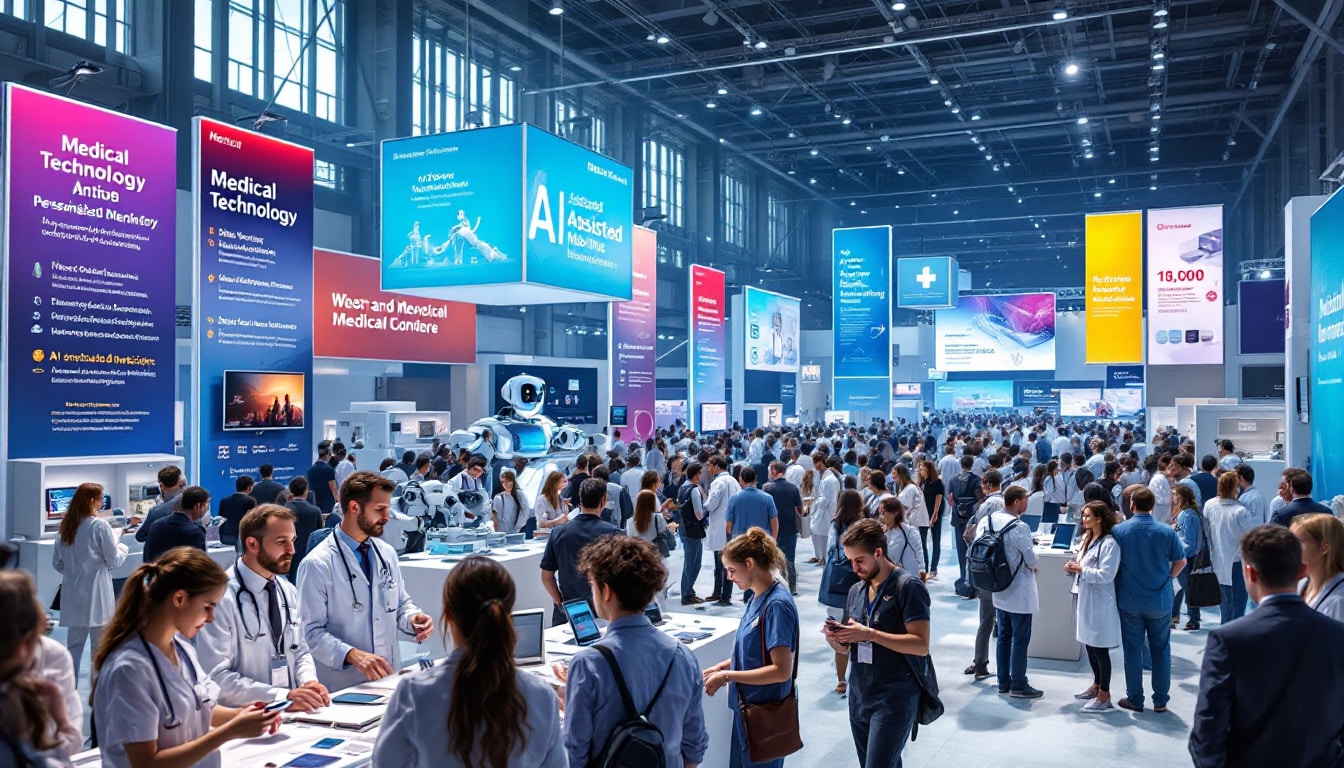|
IN BRIEF
|
In a world where health faces increasing challenges, the healthcare sector medical technologies (MedTech) is emerging as a key player, striving to revolutionize healthcare through its innovations. However, this quest for innovation is not without obstacles. The issues related to the regulation, to the cybersecurity, as well as the acceptance of new technologies, weigh heavily on the industry. In this dynamic context, it is essential to understand how MedTech innovation continues to progress despite these challenges, while examining the strategies and partnerships put in place to support this evolution.
New trends in MedTech innovation
There modern medicine is evolving at a rapid pace, characterized by revolutionary technological advances. From smart medical devices to telemedicine applications, each innovation aims to improve the quality of care. These new trends materialize through collaborations between startups and large companies, joining forces to overcome market entry barriers.
A notable example of this synergy is the France 2030 initiative, which aims to stimulate the development and marketing of innovative medical devices. Businesses must now accelerate their response to growing healthcare demands, while innovating in areas such as robotics, there telemedicine and the biotechnology.
The regulatory challenges of innovation
Despite the momentum toward innovation, the MedTech industry faces significant regulatory challenges. There regulation medical devices varies significantly from country to country, complicating the process for companies wanting to market their products internationally. Regulatory agencies, such as the FDA in the United States and CE in Europe, impose strict requirements for safety and effectiveness.
This situation requires constant adaptation by companies, which must invest in clinical trials, technical evaluations and the documentation required to obtain the necessary approvals. Sometimes this bureaucracy can hinder the release of potentially beneficial technologies that could transform medical practices.
Cybersecurity at the heart of MedTech innovations
With the rise of digital and connected technologies, the cybersecurity has become a major issue. Modern medical devices are often interconnected and collect sensitive data, making them vulnerable to cyberattacks. At Medtronic, for example, discussions around industry challenges highlight the urgency of improving device security in the face of growing threats.
Businesses must not only implement robust security protocols but also educate users about the importance of data security. By integrating these considerations from the design phase, innovation can thrive while ensuring that patients and sensitive information are protected.
The impact of partners on MedTech innovation
Collaboration between industry players is essential to propel MedTech innovation. Large industrial companies, like Johnson & Johnson, join forces with innovative startups and research centers to develop innovative solutions. This hybridization between the pharmaceutical sector and MedTech promotes the sharing of knowledge and skills, accelerating the development of new products.
Initiatives such as the Plug And Play MedTech Expo facilitate these meetings by connecting entrepreneurs, investors and innovation managers to exchange ideas and concepts. Strategic agreements are thus forged to face common challenges and exploit market opportunities together.
Use of artificial intelligence and digital technologies
The integration of theartificial intelligence and digital technologies in medical devices represents a major advance. These technologies help improve not only diagnostic accuracy, but also the patient experience. For example, AI-assisted clinical decision support systems can GUIDE practitioners in choosing the most suitable treatments.
Innovations such as Harrison.ai demonstrate how AI can transform the field of radiology, providing accurate and rapid analyses. Together with other innovations, such as new FDA approvals for colorectal cancer detection devices and breast implants, technological innovation is booming.
The challenges of accepting innovations by health professionals
An often underestimated obstacle in the innovation journey is theacceptance new technologies by health professionals. Although these innovations bring significant benefits, their adoption can be slowed by resistance to change, the need for additional training, or distrust of new technologies. An impact study is required to demonstrate the tangible benefits of these technologies on the effectiveness of care.
At the same time, the commitment of regional health agencies is crucial to support the acculturation of healthcare professionals to new practices brought by MedTech innovations. Continuing education programs can be implemented to facilitate this transition.
Future Perspectives for MedTech Innovation
The future prospects for MedTech innovation appear promising. Events like the CEO Forum provide valuable lessons for future industry leaders, strengthening the exchange of knowledge and best practices. Furthermore, market dynamics continue to grow, making the need for continuous innovation more evident every day.
The challenges that remain should not be seen as barriers, but rather as opportunities for transformation and adaptation. Regulation, cybersecurity and the acceptance of innovations are all elements that require the vigilance and cooperation of all health stakeholders.
In short, the MedTech sector is booming, fueled by a desire for sustainable innovation. The challenges of the sector, whether regulatory, technological or societal, require adapted responses in order to continue moving forward. Over time, it is becoming clear that MedTech innovation has the potential to profoundly transform the health experience of patients and healthcare professionals. Each successful project opens the door to new possibilities, strengthening the foundations of a more connected and efficient medical future.
In a world where medtech takes a preponderant place, innovations emerge as promises of improvement for the sector of health. Companies commit to develop of the medical devices revolutionary, although this approach is hampered by challenges such as regulation and concerns about cybersecurity. Despite these obstacles, agencies like the General Directorate of Enterprises and theHealth Innovation Agency publish roadmaps to guide the sector towards collaboration increased between biotech and the medtech, thus promoting the acceptance of innovations by the market. In short, medical innovation is at work, transforming a complex landscape with solutions that aim to optimize surgical practices and drive considerable progress for the well-being of patients.













